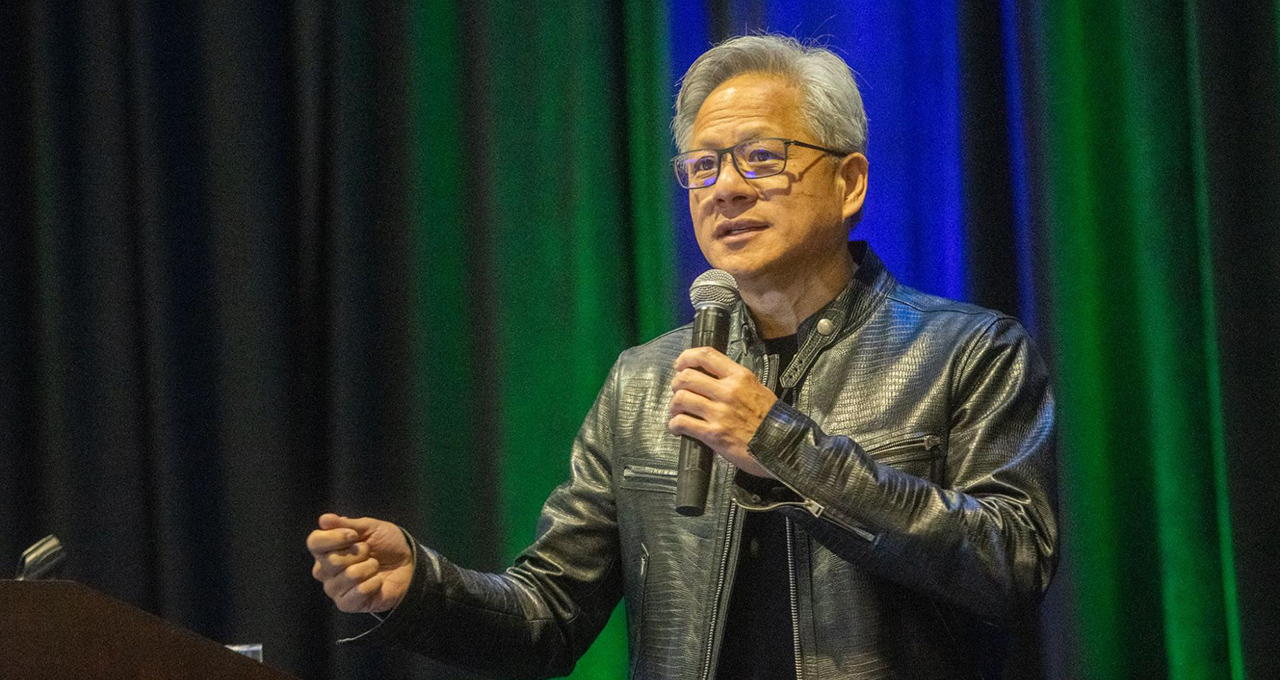NVIDIA’s contributions to accelerating medical imaging, genomics, computational chemistry and AI-powered robotics were honored Friday at the Precision Medicine World Conference in Santa Clara, California, where NVIDIA founder and CEO Jensen Huang received a Luminary award.
The Precision Medicine World Conference brings together healthcare leaders, top global researchers and innovators across biotechnology. Its Luminary award recognizes people transforming healthcare by advancing precision medicine in the clinic.
For nearly two decades, NVIDIA has advanced computing in healthcare — working with researchers and industry leaders to build instruments that enable scientists to better understand life sciences, medical imaging and genomics.
“We built, if you will, a computational instrument. Not a gene sequencer and all the incredible scientific instruments that you all talk about here — in our case, it was a programmable scientific instrument,” Huang said in his acceptance speech. “We built it in service of researchers and scientists as you strive to better understand life in our universe.”
The first use of accelerated computing in life sciences was in the 2000s — and the introduction of the NVIDIA CUDA parallel computing platform in 2006 paved the path for researchers to demonstrate how NVIDIA GPUs could be used in medical imaging applications like CT reconstruction.
“NVIDIA developed and continues to develop GPUs that are at the heart of AI and machine learning that are changing the world, including precision medicine,” said Dr. Gad Getz, an internationally acclaimed leader in cancer genomics and the director of bioinformatics at the Massachusetts General Hospital, as he presented the award.
Today, NVIDIA AI and accelerated computing is “impacting analysis, interpretation and translation of sequencing data, new sequencing technologies, imaging data, spatial technologies, single-cell genomics, proteomics, molecular dynamics and drug development, as well as the large language models that can be used by doctors, patients, students and teachers to learn this field,” Getz said.
Advancing Precision Medicine With Accelerated Computing
Huang spoke about the ways AI will support the work of doctors, scientists and researchers advancing medicine. By investing in AI, he explained, research organizations and businesses can set up a powerful flywheel that continuously improves in accuracy, efficiency and insights by integrating additional data and feedback from every expert who interacts with it over time.
“Even though people say you want humans in the loop with AI, in fact, the opposite is true. You want AI in the loop with humans,” Huang said. “The reason for that is because when the AI is in the loop with humans, it codifies our life experience. If there’s an AI in the loop with every single researcher, scientist, engineer and marketer — every single employee in your company — that AI in the loop codifies that life experience and keeps it in the company.”
Looking ahead, Huang said that “in the coming years, AI will advance with incredible speed and revolutionize the healthcare industry. AI will help doctors predict, diagnose and treat disease in ways we never thought possible. It will scan a patient’s genome in seconds, identifying risks before symptoms even appear. AI will build a digital twin of us and model how a tumor evolves, predicting which treatments will work best.”
“I wouldn’t be surprised if before 2030, within this decade, we’re representing basically all cells,” said Huang. “We have a representation of it, we understand the language of it, and we can predict what happens.”
Huang predicts that surgical robots will perform minimally invasive procedures with unparalleled precision, robotic caregivers will assist nurses and other healthcare professionals, and robotic labs will run experiments around the clock, accelerating drug discovery. AI assistants, he said, will let doctors focus on what matters most to them: patients.
In his talk, Huang also thanked the medical research community and highlighted how great breakthroughs come from partnerships between technology companies, researchers, biotech firms and healthcare leaders. Over 4,000 healthcare companies are part of the NVIDIA Inception program designed to help startups evolve faster.
Learn more about accelerated computing in healthcare at NVIDIA GTC, a global AI conference taking place March 17-21 in San Jose, California.
